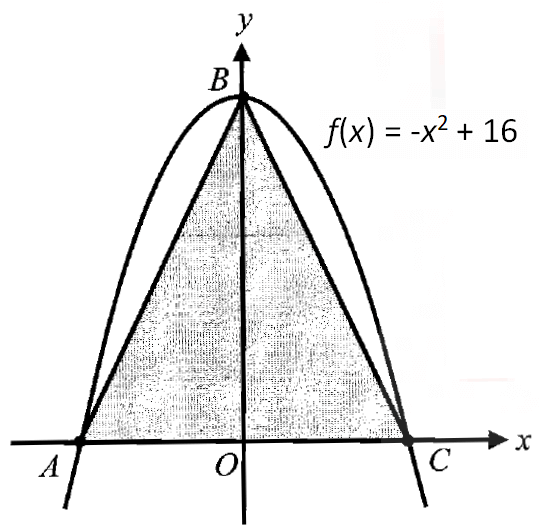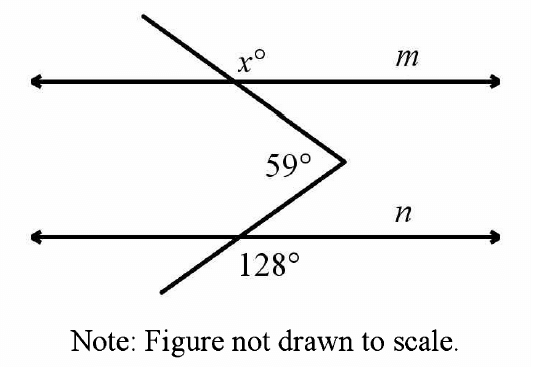ALGEBRAIC MANIPULATION WORKSHEET
Question 1 :
Sum of the present age of Liam and and thrice of his age 6 years ago is equal to twice of his age 3 years hence. Find the present age of Liam.
Question 2 :
In a three digit number, the middle digit is zero and the third digit is four times the first digit. If the number formed by interchanging the first and third digits is more than the original number by 594, find the number.
Question 3 :
The length of a rectangle is thrice of its width. If the area of the rectangle is 48 cm2, find the perimeter of the rectangle.
Question 4 :
In a triangle, if the average of the first two angles is 55°, find the third angle.
Question 5 :
If the sum of two-third and three-fifth of a number is 57, find the number.
Question 6 :
In the quadratic equation 2x2 - 5x - 12 = 0, consider the value of x such that x < 0 and find the value of
4x2 + 2x - 7
Question 7 :
Given y < 0 and (y + 1)2 = 25. Find the value of y3.
Question 8 :
3x + 7 < 43
5x - 1 > 19
Which of the following values of x will satisfy the above system of inequalities?
A) 4
B) 7
C) 13
D) 18
Question 9 :
Find the fourth term of the sequence defined as
g(0) = 7
g(x + 1) = 3g(x) + 1 for x ≥ 0
Question 10 :
Find the domain of the function g(x) where
g(x) = ¹⁄₍₅ₓ ₋ ₁₂₎

Answers
1. Answer :
Let x be the present age of Liam.
Liam's age 6 years ago = x - 6
Liam's age 3 years hence = x + 3
From the given information, we have
x + 3(x - 6) = 2(x + 3)
x + 3x - 18 = 2x + 6
4x - 18 = 2x + 6
2x - 18 = 6
2x = 24
x = 12
The present age of Liam's is 12 years.
2. Answer :
Let x be the first digit of the three digit number.
From the given information, the required three digit number is
(x)(0)(4x)
Given : The number formed by interchanging the first and third digits is more than the original number by 594.
(4x)0(x) = (x)0(4x) + 594 ----(1)
Idea for further solving the problem.
Consider the three digit number 274. We have 2 in hundreds place, 7 in tens place and 4 in ones place. So, we can write 274 as
274 = 2(100) + 7(10) + 4(1)
(1)---> 100(4x) + 10(0) + 1(x) = 100(x) + 10(0) + 1(4x) + 594
400x + 0 + x = 100x + 0 + 4x + 594
401x = 104x + 594
297x = 594
x = 2
4x = 8
(x)0(4x) = 208
Therefor, the required three digit number is 208.
Justification :
802 = 208 + 594
802 = 802 ✔
3. Answer :
Let x be the width of the rectangle.
Then the length is 3x.
Area of the rectangle = 48 cm2
length ⋅ width = 48
3x ⋅ x = 48
3x2 = 48
x2 = 16
Take square root on both sides.
x = ±√16
x = -4 or x = 4
Since x is width of the rectangle, it can not be negative.
So, x = -4 can be ignored. Then
width = 4 cm
length = 3x
= 3(4)
= 12 cm
Perimeter of the rectangle :
= 2(length + width)
= 2(12 + 4)
= 2(16)
= 32 cm
4. Answer :
In a triangle, if the average of the first two angles is 55°, find the third angle.
Given : Average of the first and second angles is 55°.
⁽ˢᵘᵐ ᵒᶠ ᵗʰᵉ ᶠⁱʳˢᵗ ᵗʷᵒ ᵃⁿᵍˡᵉˢ⁾⁄₂ = 55°
sum of the first two angles = 110°
In a triangle, three angles add up to 180°.
sum of the first two angles + third angle = 180°
110° + third angle = 180°
third angle = 70°
5. Answer :
Let x be the required number.
Two-third of the number = ²ˣ⁄₃
Three-fifth of the number = ³ˣ⁄₅
Given : Sum of two-third and three-fifth of the number is 57.
²ˣ⁄₃ + ³ˣ⁄₅ = 57
The least common multiple of the denominators (3, 5) is 15.
Multiply both sides of the equation by 15 to get rid of the denominators.
15(²ˣ⁄₃ + ³ˣ⁄₅) = 15(57)
15(²ˣ⁄₃) + 15(³ˣ⁄₅) = 855
5(2x) - 3(3x) = 855
10x + 9x = 855
19x = 855
x = 45
The number is 50.
Justification :
Two-third of the number = ²⁽⁴⁵⁾⁄₃
= 2(15)
= 30
Three-fifth of the number = ³⁽⁴⁵⁾⁄₅
= 3(9)
= 27
Sum of two-third and three-fifth of the number = 57
30 + 27 = 57
57 = 57 ✔
6. Answer :
Solve the quadratic equation 2x2 - 5x - 12 = 0 by factoring, if possible.
2x2 - 5x - 12 = 0
2x2 - 8x + 3x - 12 = 0
2x(x - 4) + 3(x - 4) = 0
(x - 4)(2x + 3) = 0
x - 4 = 0 or 2x + 3 = 0
|
x - 4 = 0 x = 4 |
2x + 3 = 0 x = ⁻³⁄₂ |
Since x < 0, x = ⁻³⁄₂.
To find the value of 4x2 + 2x - 7, substitute x = ⁻³⁄₂ into it.
= 4(⁻³⁄₂)2 + 2(⁻³⁄₂) - 7
= 4(⁹⁄₄) - 6 - 7
= 9 - 6 - 7
= -4
7. Answer :
(y + 1)2 = 25
Take square root on both sides.
√(y + 1)2 = √25
y + 1 = ±5
y + 1 = -5 or y + 1 = 5
|
y + 1 = -5 y = -6 |
y + 1 = 5 y = 4 |
Since y < 0, y = -6.
y3 = (-6)3
y3 = -216
8. Answer :
|
3x + 7 < 43 3x < 36 x < 12 ----(1) |
5x - 1 > 19 5x > 20 x > 4 ----(2) |
From (1) and (2),
4 < x < 12
In the answer choices given, the value 7 in (B) is in the interval 4 < x < 12.
The correct answer choice is (B).
9. Answer :
g(0) = 7
g(x + 1) = 3g(x) + 1 for x ≥ 0
The given sequence is a recursive sequence in which each term is generated using one or more previous terms for which the values are already known.
Since x ≥ 0, the sequence starts when x = 0.
So, the first term is g(0), the second term is g(1), the third term is g(2) and so on.
The first term is g(0) = 7.
Substitute x = 0 in g(x + 1) = 3g(x) + 1 and evaluate g(1).
g(0 + 1) = 3g(0) + 1
g(1) = 3(7) + 1
g(1) = 21 + 1
g(1) = 22
The second term is g(1) = 22.
Substitute x = 1 in g(x + 1) = 3g(x) + 1 and evaluate g(2).
g(1 + 1) = 3g(1) + 1
g(2) = 3(22) + 1
g(2) = 66 + 1
g(2) = 67
The third term is g(2) = 67.
Substitute x = 2 in g(x + 1) = 3g(x) + 1 and evaluate f(3).
g(2 + 1) = 3g(2) + 1
g(3) = 3(67) + 1
g(3) = 201 + 1
g(3) = 202
The fourth term is g(3) = 202.
10. Answer :
Domain of g(x) is all real values of x for which g(x) is defined.
In g(x) = ¹⁄₍₅ₓ ₋ ₁₂₎, if the denominator '5x - 12' is zero, g(x) is undefined.
To find the value of x for which the denominator is zero, equate the denominator '5x - 12' to zero and solve for x.
5x - 12 = 0
5x = 12
x = 2.4
In g(x) = ¹⁄₍₅ₓ ₋ ₁₂₎, if x = 2.4, the denominator becomes zero and g(x) is undefined.
g(x) is defined for all real values of x except x = 2.4
Therefore, the domain of g(x) is all real values except 2.4.
or
Domain of g(x) = R - {2.4}
Kindly mail your feedback to v4formath@gmail.com
We always appreciate your feedback.
©All rights reserved. onlinemath4all.com
Recent Articles
-
Digital SAT Math Problems and Solutions (Part - 143)
Apr 13, 25 12:01 PM
Digital SAT Math Problems and Solutions (Part - 143) -
Quadratic Equation Problems with Solutions
Apr 12, 25 08:21 PM
Quadratic Equation Problems with Solutions -
Digital SAT Math Problems and Solutions (Part - 142)
Apr 11, 25 06:26 PM
Digital SAT Math Problems and Solutions (Part - 142)

